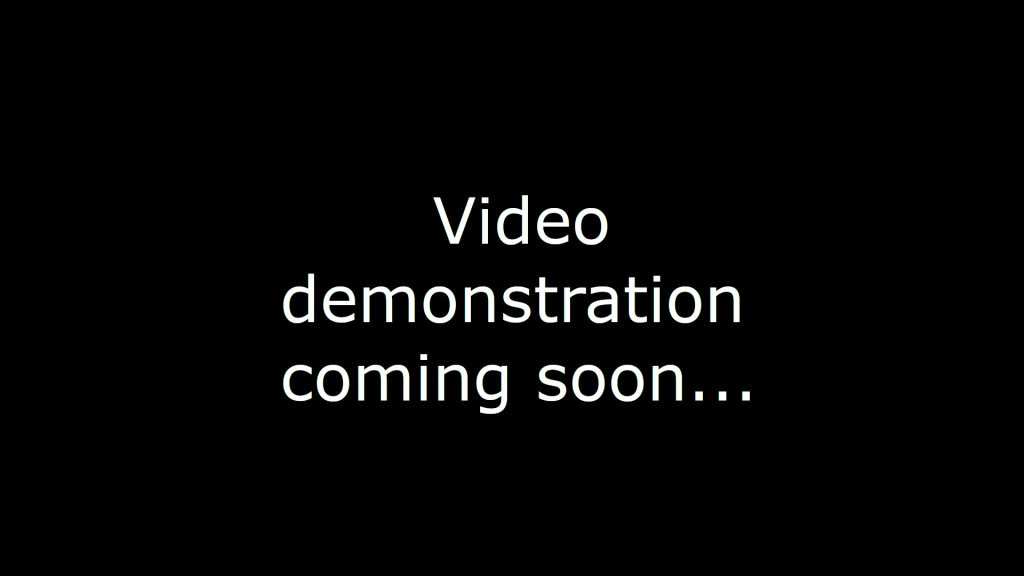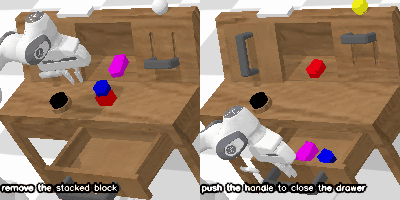EXPERIENCE
Robotics and AI Institute (formerly Boston Dynamics AI Institute)
Cambridge, MA, USA
Sept 2024 - Jan 2025
➼ Robotics internship
Dynamic Robotics and AI Lab (Oregon State University)
Corvallis, OR, USA
Aug 2022 - PRESENT
➼ Research assistance
MiCROTEC
Corvallis, OR, USA
June 2023 - Sept 2023
➼ Machine Learning / CV Intern
Proshore
Kathmandu, Nepal
Dec 2017 - JUN 2021
➼ Full-stack developer
Education
Oregon State University (SEPT 2021-Present)
- PhD in AI and Robotics
Rungta College of Engineering and Technology (2013-17)
- Topper.
- Titled Mr. Academician
- International Student of the year
- Best Outgoing International student
Orchid Public Higher Secondary School (2000-13)
- Twelve years of schooling.
- Specialization in Computer Science
- Awarded in Science exhibition for project:
Excavator (First video)
publication
Multi-Quadruped Cooperative Object Transport:Learning Decentralized Pinch-Lift-Move
Bikram Pandit, Aayam Kumar Shrestha, Alan Fern
IEEE International Conference on Robotics and Automation (ICRA), 2026
We study decentralized cooperative transport using teams of N-quadruped robots with arm that must pinch, lift, and move ungraspable objects through physical contact alone. Unlike prior work that relies on rigid mechanical coupling between robots and objects, we address the more challenging setting where mechanically independent robots must coordinate through contact forces alone without any communication or centralized control. To this end, we employ a hierarchical policy architecture that separates base locomotion from arm control, and propose a constellation reward formulation that unifies position and orientation tracking to enforce rigid contact behavior. The key insight is encouraging robots to behave as if rigidly connected to the object through careful reward design and training curriculum rather than explicit mechanical constraints. Our approach enables coordination through shared policy parameters and implicit synchronization cues—scaling to arbitrary team sizes without retraining. We show extensive simulation experiments to demonstrate robust transport across 2-10 robots on diverse object geometries and masses, along with sim2real transfer results on lightweight objects.
Non-conflicting Energy Minimization in Reinforcement Learning based Robot Control (Oral)
Skand Peri, Akhil Perincherry*, Bikram Pandit*, Stefan Lee
Conference on Robot Learning (CoRL), 2025
Efficient robot control often requires balancing task performance with energy expenditure. A common approach in reinforcement learning (RL) is to penalize energy use directly as part of the reward function. This requires carefully tuning weight terms to avoid undesirable trade-offs where energy minimization harms task success. In this work, we propose a hyperparameter-free gradient optimization method to minimize energy expenditure without conflicting with task performance. Inspired by recent works in multitask learning, our method applies policy gradient projection between task and energy objectives to derive policy updates that minimize energy expenditure in ways that do not impact task performance. We evaluate this technique on standard locomotion benchmarks of DM-Control and HumanoidBench and demonstrate a reduction of 64% energy usage while maintaining comparable task performance. Further, we conduct experiments on a Unitree GO2 quadruped showcasing Sim2Real transfer of energy efficient policies. Our method is easy to implement in standard RL pipelines with minimal code changes, is applicable to any policy gradient method, and offers a principled alternative to reward shaping for energy efficient control policies
Learning Decentralized Multi-Biped Control for Payload Transport
Bikram Pandit, Ashutosh Gupta, Mohitvishnu S. Gadde, Addison Johnson, Aayam Kumar Shrestha, Helei Duan,
Jeremy Dao, Alan Fern
Conference on Robot Learning (CoRL), 2024
Payload transport via multi-wheel robot carriers is well-understood, effective, and configurable on flat terrain. This paper aims to achieve similar effectiveness and configurability for rough terrain using multi-biped robot carriers. We replace wheels with multiple bipedal robots attached to the carrier. Our main contribution is designing a decentralized controller for such systems that works with varying numbers and configurations of these robots without retraining. We employ reinforcement learning to train the controller in simulation, ensuring transferability to the real world. Experiments demonstrate the approach's effectiveness across various simulated scenarios, and we show real-world performance with systems composed of two and three Cassie robots. To best of our knowledge, this is the first scalable multi-biped payload transport system.
Learning Vision-Based Bipedal Locomotion for Challenging Terrain (Best paper finalist)
Helei Duan, Bikram Pandit, Mohitvishnu S. Gadde, Bart van Marum, Jeremy Dao, Chanho Kim, Alan Fern
IEEE International Conference on Robotics and Automation (ICRA), 2023
Reinforcement learning (RL) for bipedal locomotion has demonstrated robust gaits over moderate terrains using proprioceptive sensing, but these blind controllers fail in environments requiring visual perception. We propose a fully-learned system that enables bipedal robots to react to local terrain while maintaining travel speed and direction. Our approach trains a controller in simulation using a heightmap in the robot's local frame, and then uses data to train a heightmap predictor based on the history of depth images and robot states. With domain randomization, this approach achieves successful sim-to-real transfer without explicit pose estimation or fine-tuning. To best of our knowledge, this is the first example of sim-to-real learning for vision-based bipedal locomotion over challenging terrains.

Simple Masked Training Strategies Yield Control Policies That Are Robust to Sensor Failure
Skand Peri, Bikram Pandit, Chanho Kim, and Li Fuxin, Stefan Lee
Conference on Robot Learning (CoRL), 2024
Sensor failures are common in real-world robot deployments, leading to potential catastrophic outcomes like unexpected behaviors or damage. Previous approaches have tried to recover missing sensor data or adapt control policies during deployment. We propose training reinforcement learning (RL) policies that are robust to sensor failures using a multimodal encoder and a training strategy that simulates sensor failures by randomly dropping sensor modalities. Our evaluations on tasks such as bipedal locomotion and robotic manipulation, both in simulation and the real world, show that our method effectively handles sensor failures in various robot embodiments. The proposed method maintains training efficiency and sample efficiency, making it a promising solution for robust RL policies.
GRAD PROJECTS

Language for Model-Based Reinforcement learning
We applied multi-task learning (MTL) for robotic manipulation by using natural commands for controlling robotic arms. A seq2seq model architecture, incorporating autoencoders and attention models, was adopted to translate these natural commands into trajectories for the robotic arms. This approach demonstrated improved performance and generalization in robotic manipulation tasks through the integration of natural language processing and model-based reinforcement learning, compared to using model-based reinforcement learning alone.
Self-balancing platform using Reinforcement learning
I utilized a policy optimization approach to train a 2-DOF self-balancing platform within the physics-based simulator Mujoco. The training and inference pipeline was implemented using a combination of Mujoco, Gym, PyTorch, and TensorFlow. This approach led to successful simulation-to-reality transfer through TFLite model quantization, enabling low-power hardware inference. Additionally, the method demonstrated significant improvements compared to model-based approaches for balancing an object on a wobbling surface.
Multi-modal late-fusion architecture for learning Audio and Text
We developed a multi-modal neural network architecture that leverages state-of-the-art models such as Transformers, CNNs, and RNNs (LSTMs and GRUs) to analyze both the audio and textual aspects of songs. In this project, we incorporated and compared large language models (LLMs) like BERT, T5, and GPT, and utilized TensorFlow for training and fine-tuning the network to enhance its performance. This approach led to a significant improvement in accuracy, outperforming prior work by a substantial 34%, demonstrating the effectiveness of integrating multiple modalities.
Robust heuristic for Bipedal robot (Cassie) obstacle avoidance and point-goal navigation
Cassie is a bipedal robot popularly known for breaking Guinness world record for fastest 100m run. To achieve this feat, , the robot was trained in the simulator with high speed user command and proprioception as the input to the RL controller. However, such blind controller would fail in the situation where it has to react to the terrain, such as stepping on a block or avoiding an obstacle. Furthermore, the robot would constantly need the command from the user. In this project, I have built a autonomous heuristic for a robot to navigate in a terrain with obstacle with an addition of depth camera to the controller.
Machine common sense
In this particular task, I have developed the maneuver to pick a soccer ball that is surrounded by a lava region. The ball is unreachable because of its untraversable surrounding. However, there is a tool which a robot can use to push a ball out from untraversable region and then go pick up. I developed a heuristic in which a robot need to look around in a room with unknown map from its egocentric vision, find a ball, figure out the right tool and be able to use the tool correctly to pick up a ball. This work was sponsored by DARPA and our team from Oregon State University competed with team from other prestigious universities such as CMU, UCB, MIT and IBM where we stood a 2nd place.
opensource contributions
IsaacLab
Contributed to IsaacLab which is open-source framework designed to unify and simplify robotics research workflows.
RSL-RL
Contributed to rsl_rl which a fast and simple implementation of RL algorithms, designed to run fully on GPU
Mujoco
Opened up bugs in Mujoco simulator
Flutter SDK
I have developed a notable feature in one of the leading technologies in mobile app developed by Google. It is released in Flutter version 2.0 in March 3, 2021.
HyperTrack
I have found a major bug and proposed a solution to the HyperTrack.. HyperTrack is toolset contains iOS, and Android SDKs which generate live location data, that is then consumed through webhooks and APIs.
MockAPI Server
I developed a mock server that hosts an open API specs (or Swagger) in any system. This avoids overhead during client-side app development.
Circular Range Slider
I built an android library for selecting range in circular disc such as selecting from-to time in a clock.
String Translator
I wrote an automation tool in Python and used GCP to bulk translate all strings in Android and iOS application to any number of languages at a time.
Location Update Library
I build a convenient library for Android to received location updates as a callback function.
SOftware PROJECTS
Background Recorder
An android application that records audio / video, captures image even when the device screen is off.
Start recording anytime with volume button and capture anything in disguise.
It has 200K+ downloads, 4.1 ratings with over 500 daily active users.
Universal Translator
A translation service and platform to translate strings that is used in the software application and is packed with many more features.
Lab Reporting Software
In-browser Lab Reporting software. Progressive web app, installable on Mac, Windows, Linux Android and iPhone.
ShareByte
One place to write and share with everyone. An website where you can write anything and it synchronized over all browsers
OSU Waitlist count
Realtime minimalistic class wait-list counter for Oregon State University.
Use in this format https://osuclass.bikcrum.com/?crn=123,754
Live-Covid Tracker
An Android application showing COVID-19 statistics. This includes graph, time range selection and map view.
Chaincargo mobile apps
A mobile application for tracking the courier in delivery process.
Ekoplaza mobile apps
Ekoplaza is organic supermarket chain.
My cols
My cols has all the information of your favourite climbs, hills or cols worldwide. At the moment myCols has over 3800 cols and climbs.
LoveLock mobile apps
Tinder-like dating app (Android and iOS)
UNDERGRAD projects
Mix of programming, mechanics, and electronics.
Smartphone operated car
A miniature working model of smartphone operated car.
Self-balancing surface
A surface that stays horizontal using gyroscope to become aware of orientation.
Magic POV
A magic wand prototype remotely controlled from smartphone.
Childhood ideas
Auto-door locker
Closing and opening door remotely.
Robo-head massager
Cheapest robotic massager ever made in the planet earth.
Zig-zag massager
A massager made up of wooden plank, geared motor and laptop battery.
Water cooler
A technology that can be used to increase the humidity of air and thus provide cool air flow.
Stirrer
Feel lazy to stir?

